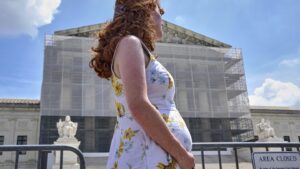Supreme Court to Review Landmark Voting Rights Case: Potential Implications for Future Elections
The Supreme Court’s review of the Louisiana Voting Rights case is set to be a historic decision that could redefine voting rights and election fairness in the U.S. The case, Louisiana v. Callais, examines whether Louisiana’s redistricting map violates the Voting Rights Act (VRA) by diluting the power of Black voters. This ruling could shape how future congressional districts are drawn, impacting elections nationwide.
Understanding the Louisiana Voting Rights Case
Louisiana’s voting map has been a subject of legal scrutiny for years. Here’s a breakdown of what led to the Supreme Court’s involvement:
| Key Events | Details |
|---|---|
| 2011-2020 | Louisiana had only one majority-Black congressional district, despite a Black population of 33%. |
| 2022 | A federal court ruled that the current map violated the Voting Rights Act, ordering Louisiana to create a second majority-Black district. |
| 2023 | Louisiana lawmakers approved a revised map, but opponents claim it still disadvantages Black voters. |
| 2024 | The Supreme Court agreed to review the case to determine if the new map fairly represents Black voters or constitutes racial gerrymandering. |
This ruling will set a legal precedent for how minority representation is handled in future elections across the U.S.
Why the Supreme Court’s Decision Matters
The Supreme Court’s ruling in Louisiana v. Callais could reshape election laws. Here’s how:
- If the Court Upholds Louisiana’s Map: This would weaken protections under the Voting Rights Act, allowing states to justify district lines that may limit minority representation.
- If the Court Rules Against Louisiana: This could force states with similar maps (like Georgia, Texas, and Florida) to redraw their districts, potentially shifting political power in Congress.
- Broader Political Impact: The decision could influence the balance of power in the U.S. House of Representatives and state legislatures, particularly in swing states.
Potential Outcomes of the Supreme Court Decision
Supreme Court Ruling
│
┌───────────┴───────────┐
│ │
Upholds Map Strikes Map
│ │
Fewer minority More fair districting
districts nationwide representation
│ │
Impact on House Lawsuits in other states
and Senate control for redistrictingThe Role of the Voting Rights Act in This Case
The Voting Rights Act of 1965 (VRA) is central to this case. It prohibits racial discrimination in voting and ensures fair representation for minority communities. Louisiana’s case raises critical questions:
- Does the revised map comply with the VRA?
- Are states using racial gerrymandering to weaken minority votes?
- Will the Supreme Court redefine how the VRA is interpreted?
The ruling could either strengthen the VRA or weaken its power in future legal battles over redistricting.
Implications for Future Elections
The Court’s ruling will have nationwide effects on how elections are conducted. Here’s how it may impact future elections:
- Congressional Control: A ruling favoring Louisiana could allow conservative-leaning states to redraw maps in ways that reduce minority representation.
- Election Fairness: If the Court reinforces the VRA, it could prevent unfair districting and ensure equal representation.
- Statewide Ballot Measures: States might introduce new laws or amendments to prevent racial gerrymandering.
This case is being closely watched as it could influence the political landscape for the next decade.
What Happens Next?
As the case moves forward, here’s what to expect:
- Oral Arguments – Legal experts will present their arguments to the Supreme Court.
- Public Reaction – Civil rights groups and political leaders will weigh in on the case’s impact.
- Final Ruling – The Court’s decision, expected later this year, will set a precedent for redistricting cases nationwide.
Conclusion: The Future of Voting Rights in America
The Supreme Court’s decision in Louisiana v. Callais will shape the future of election fairness in the U.S. Whether the ruling strengthens or weakens the Voting Rights Act, it will influence how elections are conducted, the fairness of redistricting, and political power distribution for decades to come.





